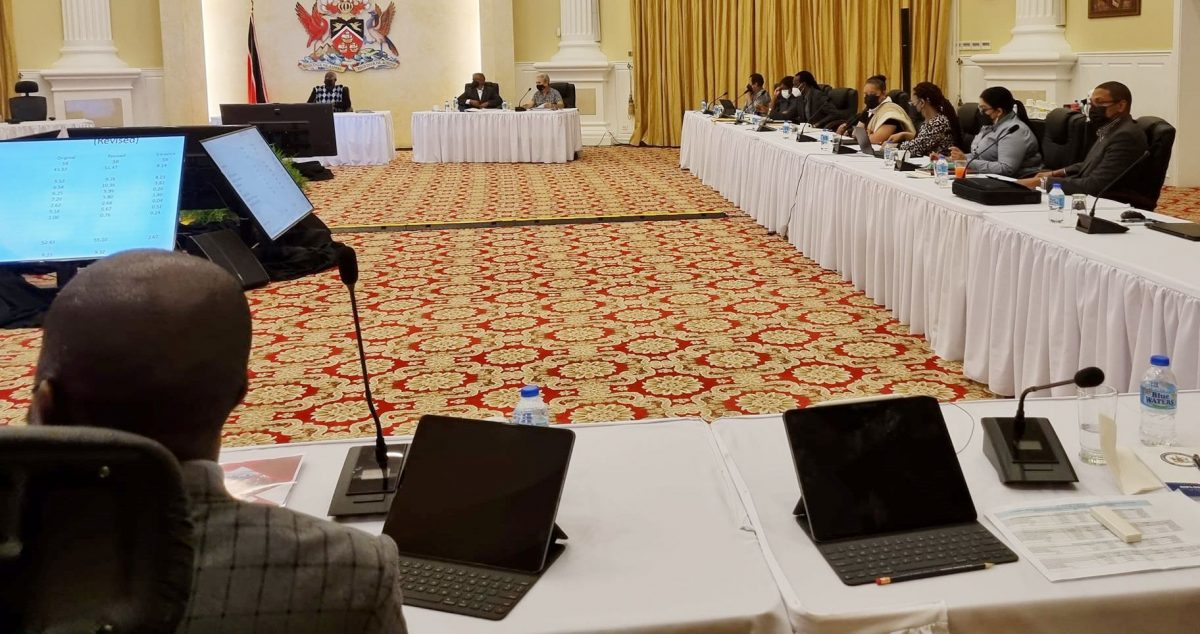(Trinidad Guardian) Crime in T&T became one of the main issues on the agenda when Prime Minister Dr Keith Rowley chaired a two-day Cabinet retreat which ended yesterday.
Guardian Media understands that on Friday acting Police Commissioner McDonald Jacob met with Rowley, who is chair of the National Security Council, to discuss crime, matters involving the T&T Police Service (TTPS) and national security at the Diplomatic Centre, St Ann’s, where the retreat was held.
The retreat was attended by Cabinet ministers including Attorney General Reginald Armour, National Security Minister Fitzgerald Hinds, Local Government Minister Faris Al-Rawi and Finance Minister Colm Imbert. Ministers of State were not part of the retreat.
With crime and murders reaching unprecedented levels in the country and citizens expressing worry, fear and panic, the meeting between both men became a critical item on the agenda.
On Friday night and yesterday, there were two brazen killings in Port-of-Spain and D’Abadie, bringing the murder count close to 300.
This follows several murders in the last two weeks.
Two weeks ago, residents of East Port-of-Spain staged a fiery protest and blocked off roads leading into Port-of-Spain for the police-involved killings of Isaiah Roberts, 16, Leonardo Williams, 17 and Fabian Richards, 22, on Independence Square, Port-of-Spain.
The issue of civilians being killed by members of the TTPS has sparked outrage in communities, with residents voicing their displeasure that officers have been abusing their power as they have become “too trigger-happy” while carrying out their duties.
In the last few months, several officers have come under investigation by the Police Complaints Authority (PCA) for civilian killings, including one of their own colleagues–PC Clarence Gilkes in Rich Plain, Diego Martin, in April.
Last month, the PCA concluded its investigations into Gilkes’ fatal shooting, stating that officers abused their power and deliberately misled Jacob as he was shot by one of his colleagues.
Between Thursday and Friday night, eight police officers–one of whom is a sergeant–were arrested following a major breakthrough in a two-year-old homicide investigation into the fatal shooting of three men in Second Caledonia, Morvant.
Seven of the officers reportedly fired their weapons repeatedly, killing Joel Jacob, Noel Diamond and Israel Moses almost instantly during a stop-and-search near the Auto Guru Building, Juman Drive, on June 27, 2020.
The country has also witnessed a spike in gang violence, home invasions, robberies and illegal weapons and ammunitions entering the country this year.
With violent crime coming in all directions, Rowley, speaking at a press conference earlier this month, stated that he was considering declaring violence a public health emergency. However, he could not give details on how this would be achieved.
“Notwithstanding our best efforts, every single day there is a spate of violent crime, largely driven, but not only driven by firearms and defying logic. I just raised it as a matter that we have to focus on, it’s a specialist area, and it involves the entire national community seeing it that way. I don’t think we are ready for the timeline yet,” Rowley said.
Rowley said it was a proposal the Government was contemplating before the COVID-19 pandemic in March 2020.
He said at that time, it would have been implemented under the National Security Ministry as an outreach and training.
“It is something that we need to go back to because this is more than just the evening news and somebody accidentally getting something done. It is just too prevalent, and it is, unfortunately, desensitising the population,” he said.
The PM admitted that he was troubled by the level of crime.
Communication Minister Symon de Nobriga did not reply to a query on Friday as to what was being discussed in the retreat.
Outside of crime, the country has been struggling with the economy and ways to deal with rising food prices, increasing local food production and poor road conditions, flooding, unemployment, education, poverty, job creation, and health matters.
Government officials said discussions were expected to have included updates on work by the respective ministries to contribute to overall planning for the 2023 Budget that is expected to be delivered in early October.
Another source said Cabinet members were looking at the local and international scenarios and “analysing and strategising” for the management of the country.

